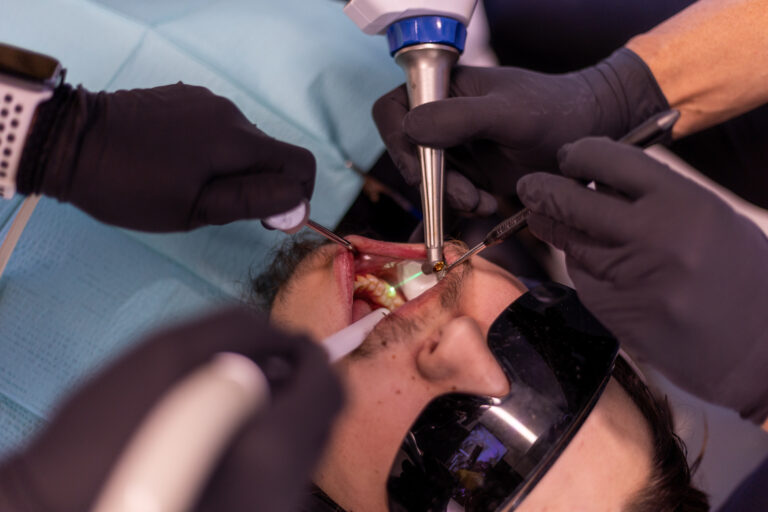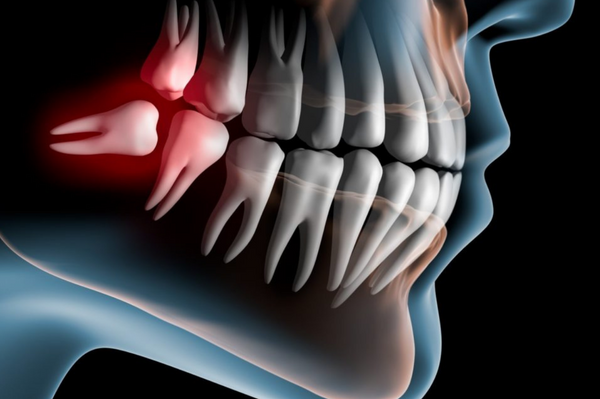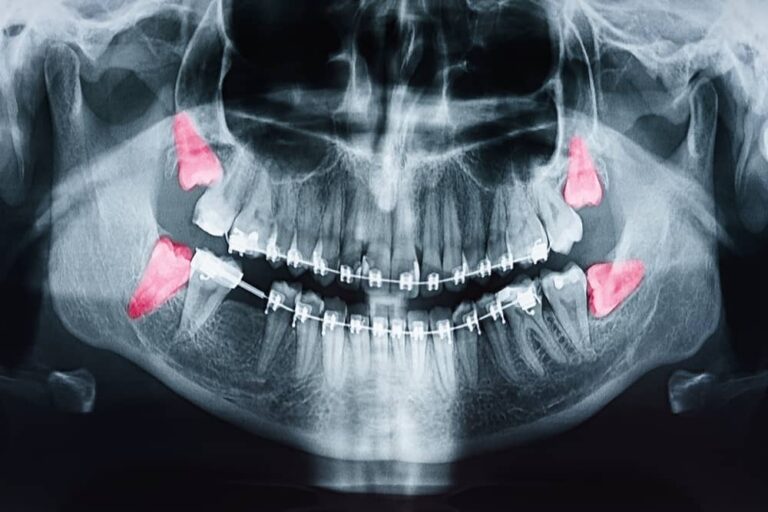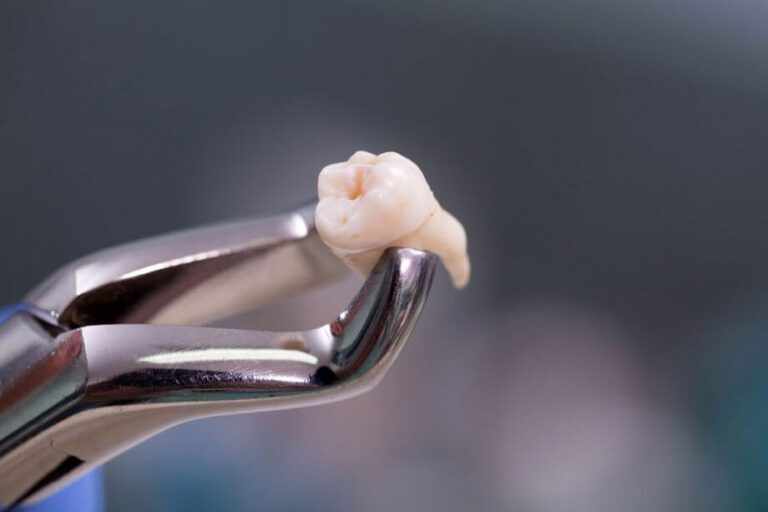Wisdom Teeth Extraction
Otherwise known as the third molars, the wisdom teeth are the last teeth to develop and emerge into the oral cavity. Each of these teeth are located at the four back corners of the mouth and typically begin to appear between the ages of 17 and 21. While some patients never have a problem with these teeth, or never develop them, the majority of cases will require extraction.
At Matthews Dental & Orthodontics, our team of dental experts is skilled in the process of monitoring wisdom teeth and performing extractions when necessary. These extractions are common, safe procedures that ensure the health of the smile and eliminate the chances of complications arising as the teeth grow. As we track the development of these teeth, we will notify our patients if one or more require removal. From there, we will take steps toward scheduling the procedure and ensuring the patient is kept comfortable and informed throughout the process.
To learn more about the extraction process and the purpose of the procedure, please refer to the sections below. If you have any questions, we invite you to contact our Saratoga Springs, UT office today.
Wisdom Teeth
Extraction
A wisdom tooth extraction is performed under the comfort of sedation and anesthetic to ensure a pleasant, pain-free experience. Before performing the procedure, our team will first confirm the precise location of the tooth or teeth requiring removal with an x-ray during our initial consultation. This will enable us to directly extract the tooth through a focused access point that leads to minimal tissue trauma.
Once we are ready to begin the procedure, we will create a small incision on the gum tissue above the tooth. Through this opening, the tooth will be located and removed; this is either done in one piece, or we will fragment the tooth into smaller pieces that can be more easily removed. In either case, we take into consideration what will be the least invasive and cause the least disruption to surrounding gums and bone tissue. Once the teeth are removed, the site will be cleaned and sutured closed for healing.


Reasons for
Wisdom Teeth Extraction
During pre-treatment consultations, our team provides thorough evaluations to determine the cases in which wisdom teeth require extraction. In each situation that we deem necessary, it is done for the benefit of the patient’s health. Below are a few of the reasons that we may suggest extraction:
-Severe jaw pain
-Infection
-Risk of damage to other teeth
-Swelling in the gums or jaw
-Overcrowding risk
-Tooth impaction
Impacted
Wisdom Teeth
Tooth impaction is one of the most common problems we see occurring with wisdom teeth; in fact, it is estimated that up to 90% of people have an impacted wisdom tooth. Impaction occurs as a result of these teeth developing, but having inadequate space to emerge. This causes the teeth to become trapped below the gum line, and potentially begin making contact with neighboring tooth roots – leading to cyst development, infection, and damage to these existing tooth structures. Some symptoms that are commonly associated with impaction include jaw pain, localized gum swelling, bad breath, and even headaches.


After Extraction of
Wisdom Teeth
Following an extraction procedure, it will be essential to follow guidelines provided by our team to ensure a smooth recovery with minimal risk of complications.
-Immediately following the procedure, gauze will be placed over the incision site to discourage gum tissue movement and minimize any bleeding. After arriving home, this gauze should be removed and discarded.
-Hygienic practices will be an essential part of healing during this time – as a clean oral space encourages a speedy recovery without the threat of infection. Teeth should be brushed as normal and the mouth should be rinsed with warm water after eating.
-Calorie consumption should be limited to a strict liquid diet for a few days following surgery. Protein shakes, soups, and jello are all safe options; however, it is important to avoid using a straw throughout recovery.
-A certain degree of discomfort, bleeding, and swelling are to be expected during recovery. Pain and swelling can be managed with ice packs on the outside of the cheeks and over the counter pain medication. Bleeding will diminish over the following day, but if you notice excessive bleeding, place a clean gauze pad over the site and contact our office for further instruction.
To schedule a consultation with our team and determine if you need a wisdom tooth extraction, contact our office today!

